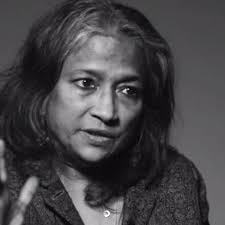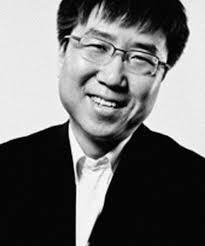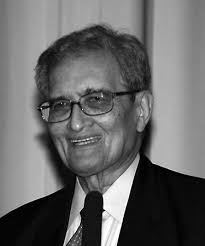Reclaiming Economies
- Anke Schwittay

- Jun 19, 2020
- 6 min read
Updated: Sep 14, 2021

Today’s economics students will be among the influential citizens and policy makers shaping human society in 2050. But the economic mindset that they are being taught is rooted in the textbooks of 1950, which, in turn are grounded in the theories of 1850. Given the challenges of the 21st century this is shaping up to be a disaster. - Kate Raworth
This post is the first part of a summary of the economics chapter of my book, which I recently finished. Even though the chapter does not focus on teaching economics students per se, but rather explores how economics-focused teaching in the social sciences can help students to better imagine and creative alternative futures, it was in part inspired by the above observation. The chapter therefore spends little time presenting the neoclassical status quo, while most of it explores a number of compelling heterodox alternatives, such as including marginalized perspectives in keeping with decolonizing pedagogy initiatives, emphasizing the teaching of inequality and exploring plural and diverse economies inside and outside the classroom. The chapter’s two teaching activities are the creation of student individual diverse economy portfolios and a group activity to design a plan for establishing a recycling cooperative. You can read this post together with a guest post by Cristina Cano, a student who recently finished a joint Economics/International Development degree at Sussex to get a student perspective on the matter.
Development Economics
Can you name these development economists?
The chapter begins with a brief summary of neoclassical economic thought that is still dominant in many university classrooms, noting in particular the dominance of white men teaching at elite universities whose texts as regarded as authoritative in the discipline. By comparison, the field of development economics, which is particularly relevant for challenges in the Global South, is more diverse and presents a good opportunity for students to learn how economic (and other) scholarship arises from personal biographies and institutional locations, shows a dynamic field shaped by diverse voices, many of which are still located at elite UK or US universities but maintain strong ties to Latin America, the Caribbean and India. The field’s founding figure provides a good example of this.
Arthur Lewis, who, born in the then British colony of St Lucia, was the first-ever black student to be admitted to the London School of Economics in 1933, where he met many anti-colonial advocates who shaped his economic thinking, together with his studies of the British empire and 19th century England. He became Britain’s first Black professor when he was appointed at the University of Manchester, where he developed his well-known dual economy model, for which he was awarded the Nobel Prize in 1979. Like so many academic economists, Lewis was also a policy advisor, first for the British colonial office and then to several newly independent governments in Africa and the Caribbean, where he served as Vice-Chancellor of the University of the West Indies, before taking up a professorship at Princeton. Teaching students about the live and work of this complex founding figure shows how in economics, theory/academia and practice/policy as well as empire and post-colony are entangled in complex ways that defy easy categorization and ideological pigeon-holing. Other influential development economists include Walt Rostow and his 5 stages of economic growth, Raúl Prebisch and his work with the Latin American dependency school, Amartya Sen and his capabilities approach which informed the UN’s Human Development Index, Diane Elson and Naila Kabeer‘s groundbreaking with in gender and feminist economics, Ha Joon Chang‘s arguments about kicking away the ladder and Esther Duflo and Abhijit Banerjee‘s work on Poor Economics. Through this diversity of perspectives and academic biographies, students can understand the importance of a more pluralistic approach to economics-focused teaching.
Pluralist Teachings
According to Frank Stilwell, an early advocate of pluralist economics teaching, ‘a pluralist pedagogy, i.e. a teaching practice that explores a plurality of different ways of understanding how the economy works . . . is the principal antidote to the reproduction of a narrow orthodoxy in the discipline.’ Pluralist teaching includes, alongside neoclassical economics, institutional, environmental, Marxian and feminist economics, among others. Rather than a pick-and-mix approach, it asks students to consider how these different theories have developed and interact with one another. Pluralist teaching converges around a set of principles that include
recognizing the role that history, ethics and power play in economic discourse, policy and practice
understanding the complexity of economic systems and acknowledging that situated knowledge, value judgements and political ideologies shape economic decision making,
embracing more active and student-centered teaching that relates economic theories to students’ own experiences and to real-world examples
Pluralist teaching is therefore an important improvement of orthodox economics-focused teaching and has energized the teachings of students as for example in the global Rethinking Economics student network. A teaching example described in the chapter is the application of Kate Raworth’s 21st century economics principles to students’ understanding of the COVID crisis.
For decolonial scholars, however, the mere addition of different approaches, while keeping neoliberal economics firmly in place, does not go far enough. Their demands are for a more pluriversal economics that acknowledges that the discipline’s claims to universality mask its Euro-centric origins and continue to exclude work from women and scholars from the Global South. To show how such marginalized knowledges can become part of the curriculum, in my chapter I include a teaching example from Jonathan Langdon, who teaches in Canada, that is of particular relevance in the current historic moment in the fight against racial discrimination and injustice.
Decolonial economics teachings
Reading Equiano and Smith against each other
Langdon asks his students to read excerpts from Adam Smith’s The Wealth of Nations alongside the autobiography of Olaudah Equiano, published 12 years after Smith’s book, in which Equiano describes his experiences of enslavement, the middle passage, slave labor on plantations and ships and eventual freedom. For Langdon, such a reading does not only reveal the gulf between Smith’s rational, self-centered mentality and the human experiences of slavery, but also how Equiano himself used Smith’s writings to advocate for the efficiency of wage over slave labour. This shows how (former) slaves were able to appropriate Western arguments for the abolitionist cause, something that is also taught in Sussex’ Colonialism and After course. For Langdon’s students, discussing how both texts were used by proponents and opponents of the slave trade prompts them to ask why they have certainly heard of Smith before but not of Equiano. Langdon argues that ‘it is only by bringing in the voice of those impacted by [the slave] system that the immorality of the economic arrangements stands out in sharp relief.’ Situating both books at the historical emergence of capitalism also provides a fuller historical context and ‘destabilizes the foundational authority of economics to vision of progress.’ It allows for an ontological reframing of capitalism from a structural given to a system produced by particular discourses and practices and that therefore can be changed.
Another teaching example in the chapter comes from my Sussex colleague Paul Gilbert, who has developed a third year specialist module on Wealth, Inequality and Development, which interrogates the drivers and consequences of inequality and uneven wealth accumulation. The module is constructed around a post-colonial perspective and presents the long history of politics and practices of inequality, from questions of colonial drain and reparations to the colonial origins of contemporary corporate dispute resolution mechanisms to the current work of the Southern Centre for Inequality at Wits University in South Africa, to complement the better-known Thomas Piketty debates around inquality. Where neoclassical assumptions hold that inequality is an inescapable aspect of growth and will eventually be ameliorated by it, heterodox economists advocate for a pro-active redesign of the economy to distribute wealth and resources more equally. In his teaching, Paul focuses on issues such as taxation, land inequality and international law. He also introduces students to the work of advocacy, campaigning and research groups such as the Tax Justice Network, IIED and Debt Resistance UK and follows a problem-focused pedagogy where theoretical discussions are linked to specific challenges. As an example of combining critical reading of academic, policy and activism texts with creative activities, Paul introduces students to interesting data sets such as the Panama Papers to get them thinking about how different actors use and manipulate figures and data. Students then learn some of the practical skills used by NGOs and investigative journalists to read corporate accounts to detect tax avoidance and evasion and try to apply these to reading corporate tax sheets themselves. In this way, students develop a hands-on understanding of corporate tax avoidance and how to find it and think through the implications of both. Subverting the economics 101 skill of reading financial statements, here students learn to read them ‘for difference’ to destabilize mainstream ideas and uncover what is unseen, but also what can be possible when the invisible is brought to light. A brilliant example of critical-creative teaching!

This is a great blog to which Paul contributes













Comments